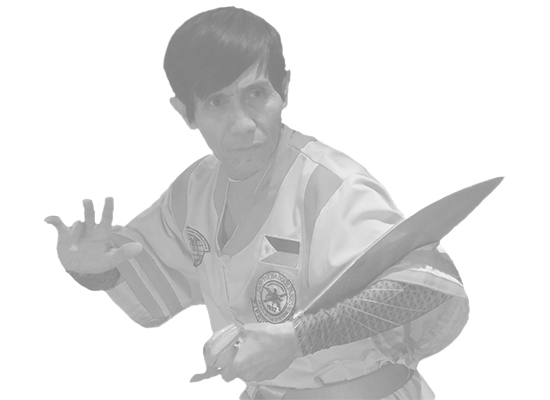History of Eskrima
ESKRIMA-KALI-ARNIS
Filipino Martial Arts (FMA) are known predominantly as Arnis. However in the Visayan Islands where it was most prominent the general term is Eskrima. The term Kali has also become a common term used and hence accumulatively FMA is often referred to as Eskrima-Kali-Arnis; they are three terms to describe the same thing.
The exact date of its origin, however, remains unclear. Traces of historical evidence reveal that this art involving the use of a single stick, two sticks, a long and a short stick, a dagger, or some other blunt instruments along with an array of bladed swords and daggers no doubt existed long before the arrival of the first Spanish colonizers in the country. The first known Filipino hero, Lapulapu, was believed to be one of the foremost masters of Eskrima-Kali-Arnis. In fact, Lapulapu had vigorously trained and prepared his men for "showdown" fights against his enemies long before his historic battle with Ferdinand Magellan on 27th April 1521, at Mactan Island, where Magellan lost his life.
DOCE PARES
Doce Pares was founded on January 11, 1932 by a small group of Eskrima Masters spearheaded by Eulogio Cañete, Lorenzo Saavedra and Teodoro Saavedra. Twelve of them originally conceptualized it but shortly after its inauguration on 21st January that year the membership rose to twenty-four. Eulogio Cañete and Teodoro Saavedra were elected as President and Vice President respectively. Other elected officers and original members were Fortunato Peñalosa (secretary), Marcelo Verano, Deogracias Nadela, Strong Tupas, Rodolfo Quijano, Pio Deiparine, Florentino Cañete, Felimon Cañete, Juanito Lauron, Federico Saavedra, Cecilio Dela Victoria, Lorenzo Saavedra, Margarito Revilles and Anastacio Deiparine.
The name Doce Pares was adopted in reference to the famous twelve bodyguards of Emperor Charlemagne of France (AD 768-814). These twelve people, all top swordsmen, were known to have fought and killed hundreds of enemies in battles. Doce Pares, which is Spanish for "twelve pairs", was meant also to honour the twelve people who originally planned to form the organization and when the membership rose to twenty four at the time of the inauguration, it indeed became more significantly fitting.
The Doce Pares group trained the styles of these Masters covering all the combat ranges and weapons utilised. The Doce Pares Eskrimadors became adept at both armed and unarmed combat and were widely known and highly respected throughout Cebu and the Visayan Islands. Doce Pares members took part in the Eskrima Wars which saw groups battling each other with great regularity and/or Death Matches between individuals.
DOCE PARES STYLES
The original Masters who formed the Doce Pares group and multi-style system have all passed. The last was the great Gm 'Momoy' Cañete who passed away in 1995. Some of the students who were trained by these original Masters went on to continue to practice their Doce Pares Eskrima and forge their own developments in their own right, creating their unique styles of the system. Today there are many Doce Pares groups still practicing the original teachings with their own additions; groups such as Cacoy Doce Pares (Sgm Cacoy Cañete), Bandalan Doce Pares (Gm Fred Bandalan), Carin Doce Pares (the Gm Carin brothers), and Guba Doce Pares (Sgm Danny Guba). There are many other Doce Pares groups each forging their own styles from the original system and continually evolving the art ensuring it never becomes stagnant.
GUBA DOCE PARES INTERNATIONAL
The Guba Doce Pares style is taught through Sgm Danny Guba. The international organisation offers support to instructors around the world and those wishing to find an authentic and registered club. The organisation arranges seminars, workshops, tournaments and charity events but has no involvement in the running of instructors' clubs.
Guba Doce Pares International is headed by Sgm Danny Guba who is aided by Master Nimesh Desai. Additionally each country represented has a director. That director is responsible for supporting instructors within that area. All members are there to offer help and support where it is wanted and not to interfere in the running of instructors' clubs.
Guba Doce Pares International is a non-profit-making organisation.
